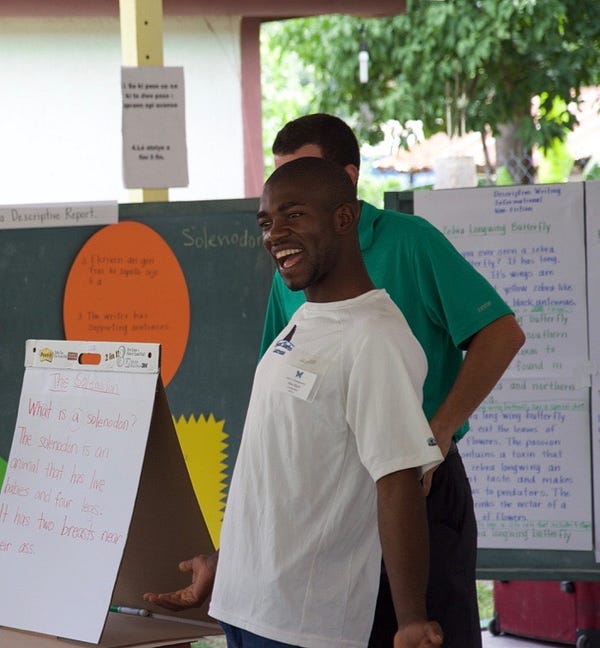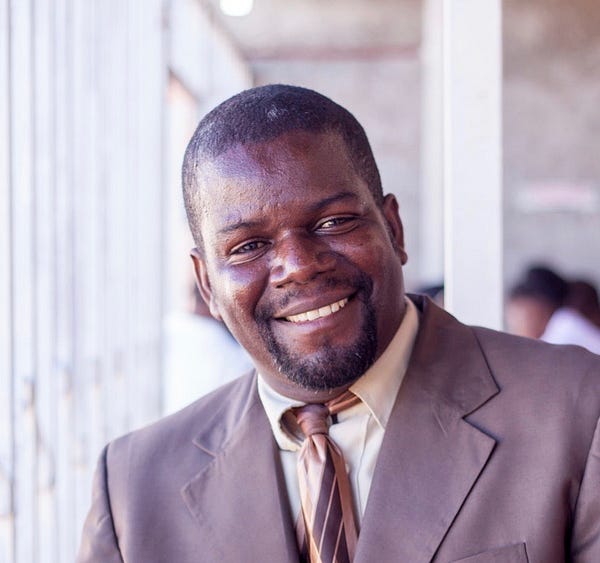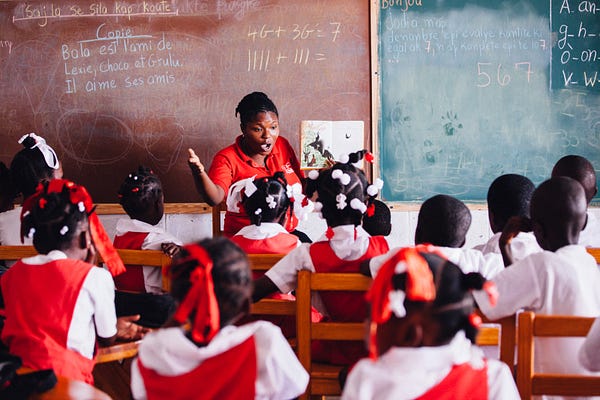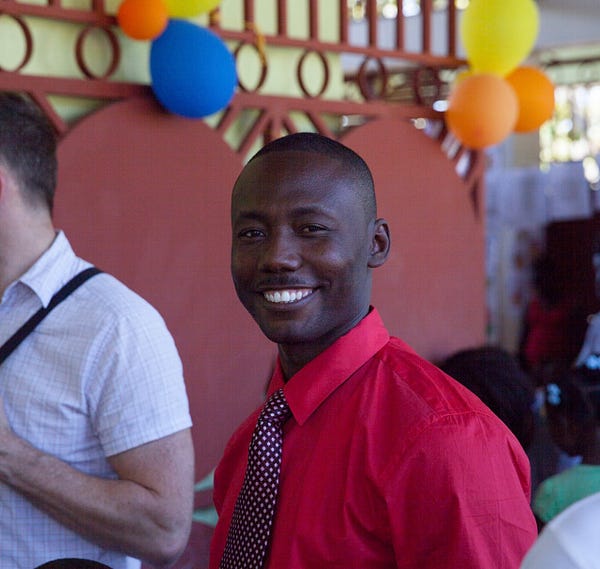
We’re frequently asked how we go about building organizational capacity and engaging community involvement. This piece explains context, our intentions and practices.
When the word “Haiti” appears, the phrase that typically follows is, “the poorest country in the western hemisphere.” It’s known as a lost cause, a broken country. Those who look beyond the media shorthand know that it’s a tough place to get things done. The World Bank ranked it 180th out of 189 countries in terms of the ease of doing business. Presently, Haiti’s in the midst of another political struggle. Election irregularities led to not having a new president in time to replace the outgoing one. Why does Haiti always seem so stuck?
The culture of love creates conditions for great collaboration in Haiti Partners. There’s this incredible can-do spirit among everyone involved which inspires people to work hard and with their whole selves. — Alex Myril, Haiti Partners Children’s Academy Coordinator

Haiti Partners believes one of the important reasons Haiti often seems stuck is rooted in cultural tendencies stemming from the traumatic legacy of colonialism and slavery. When considering Haiti’s horrific history, where cruelty was often the norm, leadership was ironfisted and disobedience was met with torture or death, is it any wonder that power is still so often abused today? Despite Haitians having freed themselves from generations of violence through the first successful slave uprising in 1804, the two centuries that followed were marred by classism, distrust, and authoritarian leadership by both international and domestic forces. This was true in all of Haiti’s institutions: government, schools, the military, the family, churches, etc. Haiti Partners focuses its efforts on two of these most fundamental institutions — schools and churches.
Each person is valued in Haiti Partners and feels appreciated. Each person is encouraged to grow and develop personally and professionally. The loving and nurturing environment fosters engagement in the work, it becomes an extension of who you are. — Enel Angervil, Haiti Partners Churches Program Coordinator

With this history in mind, Haiti Partners believes how we do things is just as important as what we do. If we want to be successful at changing the authoritarian aspects of Haitian culture, we have to approach our work with values that counter them: respect, collaboration, accountability, joy, compassion, empathy, and love. These values are mission-critical as we nurture a quiet revolution in Haiti’s education and leadership paradigm.
Haiti Partners is about working in teams that are filled with fun and joy. It’s the mutual respect and spirit of learning and wanting to constantly improve that nurtures this. It makes you want to give your best self in the work you’re doing. — Nisana Decimus, 1st Grade Teacher at Haiti Partners Children’s Academy

Over the years, we have partnered with other like-minded organizations to help us clarify our values and use methods that ensure we are on the right track.Barrett Values Centre guided us in the development of our organizational values. As a team we regularly discuss WorldBlu’s principles of organizational democracy to consider how we’re working together. Our discussion circle approach is an adaptation of Touchstones discussions, and our meetings and conferences use Open Space Technology. Church groups use Lectio Divina.
In the education that Haiti Partners promotes, each person in the class or group has the right to speak … about anything they feel that needs to be addressed. People listen to each other, and they’re at ease to discuss any subject, even if the subject can be heated sometimes … And it’s always on this basis that decisions are made. It’s not just the person at the top that makes the decisions. — Benaja Antoine, Haiti Partners Program Coordinator

Haiti Partners mission is, “to help Haitians change Haiti through education.” We do this by working with schools, churches and community leaders to change Haiti’s leadership paradigm from top-down and authoritarian, to collaborative, respectful and loving. By striving to express these values in every aspect of our work, we aim to cultivate a changemaker culture that empowers Haitians with the skills, confidence and resources they need to improve their communities and their country.